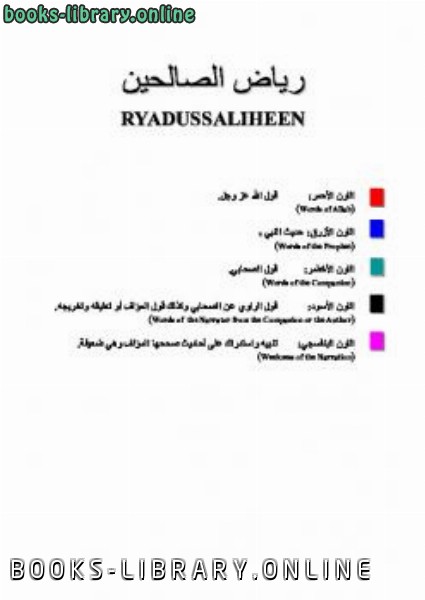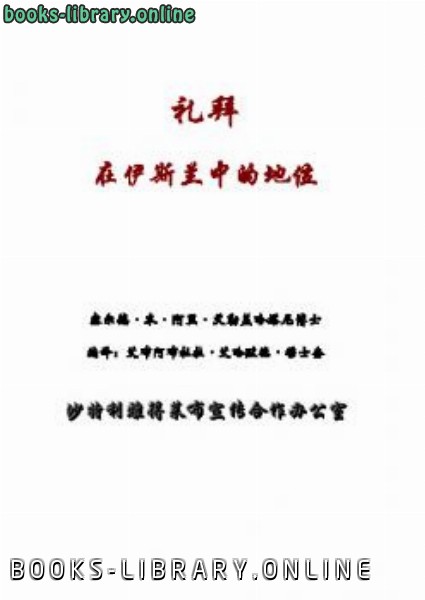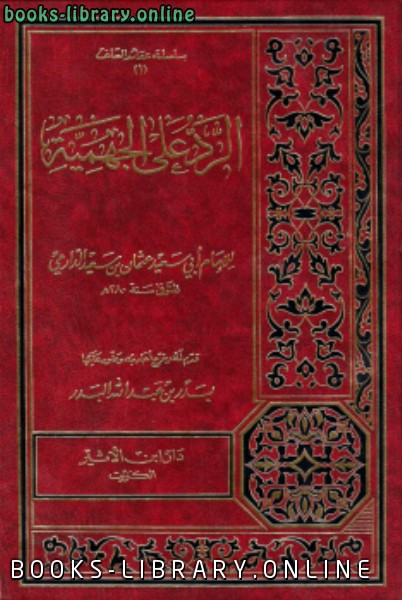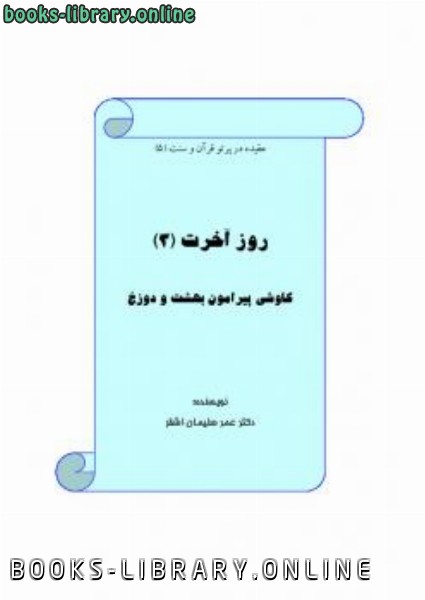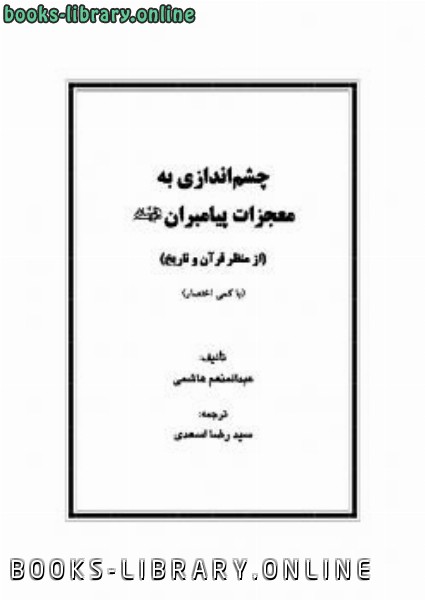كتاب Riyad us Saliheen
Sincerity and Significance of Intentions and all Actions, Apparent and Hidden Allah, the Exalted, says: "And they were commanded not, but that they should worship Allah, and worship none but Him Alone (abstaining from ascribing partners to Him), and perform As-Salat (Iqamat-as-Salat) and give Zakat, and that is the right religion.'' (98:5) "It is neither their meat nor their blood that reaches Allah, but it is piety from you that reaches Him.'' (22:37) "Say (O Muhammad (PBUH) ): Whether you hide what is in your breasts or reveal it, Allah knows it". (3:29) 1. Narrated 'Umar bin Al-Khattab (May Allah be pleased with him), reported: Messenger of Allah (PBUH) said, "The deeds are considered by the intentions, and a person will get the reward according to his intention. So whoever emigrated for Allah and His Messenger, his emigration will be for Allah and His Messenger; and whoever emigrated for worldly benefits or for a woman to marry, his emigration would be for what he emigrated for". [Al-Bukhari and Muslim]. Commentary: According to some Ahadith, the reason for this Hadith is that a person sent a proposal of marriage to a woman named Umm Qais, which she turned down saying that he should have to emigrate to Al-Madinah for it. Accordingly, he did it for this specific purpose, and the two were married there. On account of this event, the man came to be known among the Companions as Muhajir Umm Qais. On the basis of this Hadith, 'Ulama' are of the unanimous opinion that the real basis of one's actions is Niyyah (intention) and everyone will be requited according to his Niyyah. It is true that Niyyah is founded in one's heart, that is to say, one has first to make up one's mind for what he intends to do and he should not express it verbally. In fact, the latter is a Bid`ah (innovation in religion) because no proof of it is found in Shariah. The point which becomes evident from this Hadith is that Ikhlas (sincerity) is a must for every action. In other words, in every righteous deed, one should seek only the Pleasure of Allah; otherwise, it will not be accepted by The book was compiled by Imam AnNawawi who was the great scholar of Hadith and Fiqhof his time. Commentaries on the Ahadith have been added by Hafiz Salahuddin Yusuf of Pakistan who had originally executed them for the Urdu edition of this book. The English translation of the book and the commentaries was performed by Dr. Muhammad Amin and Abu Usamah AlArabi bin Razduq who have performed their task with utmost care and profound interest.أبو زكريا يحي بن شرف النووي - أبو زكريا يحيى بن شرف الحزامي النووي الشافعي (631هـ-1233م / 676هـ-1277م) المشهور باسم "النووي" هو مُحدّث وفقيه ولغوي مسلم، وأحد أبرز فُقهاء الشافعية، اشتهر بكتبه وتصانيفه العديدة في الفقه والحديث واللغة والتراجم، كرياض الصالحين والأربعين النووية ومنهاج الطالبين والروضة، ويوصف بأنه محرِّر المذهب الشافعي ومهذّبه، ومنقّحه ومرتبه، حيث استقر العمل بين فقهاء الشافعية على ما يرجحه النووي. ويُلقب النووي بشيخ الشافعية، فإذا أُطلق لفظ "الشيخين" عند الشافعية أُريد بهما النووي وأبو القاسم الرافعي القزويني. ولد النووي في نوى سنة 631هـ، ولما بلغ عشر سنين جعله أبوه في دكان، فجعل لا يشتغل بالبيع والشراء عن تعلم القرآن الكريم وحفظه، حتى ختم القرآن وقد قارب البلوغ، ومكث في بلده نوى حتى بلغ الثامنة عشر من عمره، ثم ارتحل إلى دمشق. قدم النووي دمشق سنة 649هـ، فلازم مفتي الشام عبد الرحمن بن إبراهيم الفزاري وتعلم منه، وبقي النووي في دمشق نحواً من ثمان وعشرين سنة، أمضاها كلها في بيت صغير في المدرسة الرواحية، يتعلّم ويُعلّم ويُؤلف الكتب، وتولى رئاسة دار الحديث الأشرفية، إلى أن وافته المنية سنة 676هـ. ❰ له مجموعة من الإنجازات والمؤلفات أبرزها ❞ التبيان في آداب حملة القرآن ❝ ❞ شرح متن الأربعين النووية في الأحاديث الصحيحة النبوية ❝ ❞ رياض الصالحين ❝ ❞ المنهاج في شرح صحيح مسلم بن الحجاج (صحيح مسلم بشرح النووي) (ط. المطبعة المصرية بالأزهر) ❝ ❞ رياض الصالحين من كلام سيد المرسلين (ت: التركي) ❝ ❞ الأذكار من كلام سيد الأبرار (ت: الأرناؤوط) ❝ ❞ بستان العارفين (ط. البشائر) ❝ ❞ الأربعين النوويه ❝ ❞ الإيضاح في مناسك الحج والعمرة، وعليه الإفصاح على مسائل الإيضاح على مذاهب الأئمة الأربعة وغيرهم ❝ الناشرين : ❞ دار الكتب العلمية بلبنان ❝ ❞ مؤسسة الرسالة ❝ ❞ موقع دار الإسلام ❝ ❞ دار ابن حزم للطباعة والنشر والتوزيع ❝ ❞ المركز القومي للترجمة ❝ ❞ دار ابن الجوزي ❝ ❞ دار الفكر المعاصر ❝ ❞ وزارة الأوقاف والشؤون الإسلامية - قطر ❝ ❞ دار ابن كثير ❝ ❞ دار المنهاج للنشر والتوزيع ❝ ❞ دار السلام للطباعة والنشر والتوزيع والترجمة ❝ ❞ دار البشائر الإسلامية ❝ ❞ بيت الأفكار الدولية للنشر والتوزيع ❝ ❞ مكتبة التراث الاسلامي ❝ ❞ دار الصميعي للنشر والتوزيع ❝ ❞ مكتبة الصحابة ❝ ❞ دار ابن خزيمة للنشر والتوزيع ❝ ❞ مكتبة دار البيان ❝ ❞ دار النوادر للطباعة والنشر والتوزيع ❝ ❞ مكتبة نزار مصطفى الباز ❝ ❞ دار العقيدة ❝ ❞ مكتبة الإرشاد ❝ ❞ مؤسسة قرطبة ❝ ❞ جداول للنشر و التوزيع و الترجمة ❝ ❞ مكتبة غراس للنشر والتوزيع ❝ ❞ الدار الأثرية ❝ ❞ دار المأمون للثقافة والتراث ❝ ❞ إدارة الطباعة المنيرية ❝ ❞ دار الملاح للطباعه والنشر ❝ ❞ دور نشر متعددة ❝ ❞ مكتبة الاقتصاد الإسلامي ❝ ❞ الكتاب العالمي للنشر ❝ ❞ البلد الأمين ❝ ❞ سطور جديدة ❝ ❞ دار إسلامية ❝ ❞ دار الوسام ❝ ❱
من كتب إسلامية بلغات أخرى - مكتبة كتب إسلامية.

قراءة كتاب Riyad us Saliheen أونلاين
معلومات عن كتاب Riyad us Saliheen:
Allah, the Exalted, says:
"And they were commanded not, but that they should worship Allah, and worship none but Him Alone
(abstaining from ascribing partners to Him), and perform As-Salat (Iqamat-as-Salat) and give Zakat, and
that is the right religion.'' (98:5)
"It is neither their meat nor their blood that reaches Allah, but it is piety from you that reaches Him.'' (22:37)
"Say (O Muhammad (PBUH) ): Whether you hide what is in your breasts or reveal it, Allah knows it". (3:29)
1. Narrated 'Umar bin Al-Khattab (May Allah be pleased with him), reported: Messenger of Allah (PBUH) said,
"The deeds are considered by the intentions, and a person will get the reward according to his intention. So whoever
emigrated for Allah and His Messenger, his emigration will be for Allah and His Messenger; and whoever emigrated
for worldly benefits or for a woman to marry, his emigration would be for what he emigrated for".
[Al-Bukhari and Muslim].
Commentary: According to some Ahadith, the reason for this Hadith is that a person sent a proposal of marriage to
a woman named Umm Qais, which she turned down saying that he should have to emigrate to Al-Madinah for it.
Accordingly, he did it for this specific purpose, and the two were married there. On account of this event, the man
came to be known among the Companions as Muhajir Umm Qais.
On the basis of this Hadith, 'Ulama' are of the unanimous opinion that the real basis of one's actions is Niyyah
(intention) and everyone will be requited according to his Niyyah. It is true that Niyyah is founded in one's heart,
that is to say, one has first to make up one's mind for what he intends to do and he should not express it verbally. In
fact, the latter is a Bid`ah (innovation in religion) because no proof of it is found in Shariah.
The point which becomes evident from this Hadith is that Ikhlas (sincerity) is a must for every action. In other
words, in every righteous deed, one should seek only the Pleasure of Allah; otherwise, it will not be accepted by
The book was compiled by Imam AnNawawi who was the great
scholar of Hadith and Fiqhof his time. Commentaries on the Ahadith have been added by Hafiz Salahuddin Yusuf of Pakistan who had originally executed them for the Urdu edition of this book. The English translation of the book and the commentaries was performed by Dr. Muhammad Amin and Abu Usamah AlArabi bin Razduq who have performed their task with utmost care and profound interest.
للكاتب/المؤلف : أبو زكريا يحي بن شرف النووي .
دار النشر : .
عدد مرات التحميل : 5100 مرّة / مرات.
تم اضافته في : الثلاثاء , 26 مارس 2019م.
حجم الكتاب عند التحميل : 6.3 ميجا بايت .
تعليقات ومناقشات حول الكتاب:
Sincerity and Significance of Intentions and all Actions, Apparent and Hidden
Allah, the Exalted, says:
"And they were commanded not, but that they should worship Allah, and worship none but Him Alone
(abstaining from ascribing partners to Him), and perform As-Salat (Iqamat-as-Salat) and give Zakat, and
that is the right religion.'' (98:5)
"It is neither their meat nor their blood that reaches Allah, but it is piety from you that reaches Him.'' (22:37)
"Say (O Muhammad (PBUH) ): Whether you hide what is in your breasts or reveal it, Allah knows it". (3:29)
1. Narrated 'Umar bin Al-Khattab (May Allah be pleased with him), reported: Messenger of Allah (PBUH) said,
"The deeds are considered by the intentions, and a person will get the reward according to his intention. So whoever
emigrated for Allah and His Messenger, his emigration will be for Allah and His Messenger; and whoever emigrated
for worldly benefits or for a woman to marry, his emigration would be for what he emigrated for".
[Al-Bukhari and Muslim].
Commentary: According to some Ahadith, the reason for this Hadith is that a person sent a proposal of marriage to
a woman named Umm Qais, which she turned down saying that he should have to emigrate to Al-Madinah for it.
Accordingly, he did it for this specific purpose, and the two were married there. On account of this event, the man
came to be known among the Companions as Muhajir Umm Qais.
On the basis of this Hadith, 'Ulama' are of the unanimous opinion that the real basis of one's actions is Niyyah
(intention) and everyone will be requited according to his Niyyah. It is true that Niyyah is founded in one's heart,
that is to say, one has first to make up one's mind for what he intends to do and he should not express it verbally. In
fact, the latter is a Bid`ah (innovation in religion) because no proof of it is found in Shariah.
The point which becomes evident from this Hadith is that Ikhlas (sincerity) is a must for every action. In other
words, in every righteous deed, one should seek only the Pleasure of Allah; otherwise, it will not be accepted by
Narrated 'A`ishah (May Allah be pleased with her) reported: Messenger of Allah (PBUH) said, "An army will raid
the Ka`bah and when it reaches a desert land, all of them will be swallowed up by the earth.'' She asked; "O
Messenger of Allah! Why all of them?'' He answered, "All of them will be swallowed by the earth but they will be
raised for Judgement according to their intentions.''
[Al-Bukhari and Muslim].
Commentary: Everyone will be rewarded or punished according to his aim and intention. This Hadith also proves
that the company of depraved persons is extremely dangerous. Whose army would it be, which has been referred to
in the Hadith, and when will it invade Ka`bah, is a matter known to Allah Alone. Such prophecies are a part of the
Unseen world. Since they come in the category of the miracles of the Prophet (PBUH), it is necessary to believe in
their veracity and occurrence. Believing in such prophesies is also essential because they were revealed by Allah).
A`ishah (May Allah be pleased with her) narrated that the Prophet (PBUH) said, "There is no emigration after the
conquest (of Makkah) but only Jihad [(striving and fighting in the cause of Allah) will continue] and good
intention.* So if you are summoned to fight, go forth.''
[Al-Bukhari and Muslim].
*. Intention according to An-Nawawi: It means that goodness which ceased to continue by the cessation of
emigration can still be obtained by Jihad and by intending accomplishing good deeds.
Commentary. When a country or a region is regarded as Dar-ul-Islam (land of Islam), it is not necessary to migrate
from it to some other place. It is, however, obligatory to emigrate from such regions which are Dar-ul-Kufr (land of
infidels) and where it is difficult to adhere to Islamic injunctions. It is also evident from this Hadith that when it is
not necessary to migrate from one Islamic country to another then it is also not permitted by the Shari`ah to leave an
Islamic country to settle permanently in Dar-ul-Kufr only for the reason that the latter has plenty of wealth and
social welfare. Unfortunately, Muslims today are afflicted with this disease. The transfer of their capital and talent to
Dar-ul-Kufr is indeed very disturbing because on one side these two factors are lending support to the economy of
Bilad-ul-Kufr (countries of infidels) and on the other, obscenity and indecency that are common in such countries,
are becoming increasingly common among the Muslims too.
Another highly important reason for the prohibition of migration of Muslims to Dar-ul-Kufr is that it goes against
the spirit as well as their readiness for Jihad fi sabilillah (striving and fighting in the way of Allah). This spirit and
readiness must be kept always alive so that the Muslims may respond at once to the call of Jihad whenever the need
for it arises anywhere.
Jabir bin Abdullah Al-Ansari (May Allah be pleasedwith them) reported: We accompanied the Prophet (PBUH)
in an expedition when he said, "There are some men in Al-Madinah who are with you wherever you march and
whichever valley you cross. They have not joined you in person because of their illness.'' In another version he said:
"They share the reward with you.''
[Muslim].
It is narrated by Bukhari from Anas bin Malik (May Allah be pleased with him): We were coming back from the
battle of Tabuk with the Prophet (PBUH) when he remarked, "There are people whom we left behind in Al-Madinah
who accompanied us in spirit in every pass and valley we crossed. They remained behind for a valid excuse.''
Commentary: What we learn from this Hadith is that if the intention and spirit of Jihad are present in the heart of a
Muslim but physically he is unable to take part in it for valid reasons, he will get the reward of Jihad without even
his actual participation in it.
Ma`n bin Yazid bin Akhnas (May Allah be pleased with them) (he, his father and his grandfather, all were
Companions) reported: My father set aside some dinars for charity and gave them to a man in the mosque. I went to
that man and took back those dinars. He said: "I had not intended you to be given.'' So we went to Messenger of
Allah (PBUH), and put forth the matter before him. He said to my father, "Yazid, you have been rewarded for what
you intended.'' And he said to me, "Ma`n, you are entitled to what you have taken.''
[Al-Bukhari].
Commentary:
1. This Hadith leads us to the conclusion that if Sadaqah (charity), goes to a needy son of a Muslim, there is no need
to take it back from him for the reason that the father had intended to give it to a deserving person. The former gets
the reward for it on account of his Niyyah (intention). This however, will be reckoned as Nafli Sadaqah (voluntary
charity) because the obligatory Zakat (Sadaqah) cannot be given to the donor's own dependents.
2. It is permissible in Shari`ah to make someone a Wakil (attorney or agent) for Sadaqah.
3. It does not amount to disobedience on the part of a son to take his father to a competent authority or scholar to
know the legal position on any issue, in the same way, as mutual discussion and debate on matters of Shari`ah does
not amount to insolence. (Fath Al-Bari, chapter on Zakat).
Abu Ishaq Sa`d bin Abu Waqqas (May Allah be pleased with him) (one of the ten who had been given the glad
tidings of entry into Jannah) narrated: Messenger of Allah (PBUH) visited me in my illness which became severe in
the year of Hajjat-ul-Wada` (Farewell Pilgrimage). I said, "O Messenger of Allah, you can see the pain which I am
suffering and I am a man of means and there is none to inherit from me except one daughter. Should I give two-
thirds of my property in charity?'' He (PBUH) said, "No". I asked him, "Then half?'' He said, "No". Then I asked,
"Can I give away one-third". He said, "Give away one-third, and that is still too much. It is better to leave your heirs
well-off than to leave them poor, begging people. You will not expend a thing in charity for the sake of Allah, but
you will be rewarded for it; even the morsel of food which you feed your wife''. I said, "O Messenger of Allah,
would I survive my companions?'' He said, "If you survive others and accomplish a thing for the sake of Allah, you
would gain higher ranking and standing. You will survive them ... your survival will be beneficial to people (the
Muslim) and harmful to others (the enemies of Islam). You will survive others till the people will derive benefit
from you, and others would be harmed by you.'' Messenger of Allah (PBUH) further said, "O Allah, complete for
my Companions their emigration and do not cause them to retract.'' Sa`d bin Khaulah was unfortunate. Messenger of
Allah (PBUH) lamented his death as he died in Makkah.
[Al-Bukhari and Muslim].
Commentary: In spite of all their love for it, the Companions of the Prophet (PBUH) did not like to die in a city
from which they emigrated for the sake of Allah. For this reason Sa`d (May Allah be pleased with him) was afraid
of dying in Makkah. The Prophet (PBUH) prayed for the accomplishment of Sa`d's emigration and expressed regret
over the misfortune of Sa`d bin Khaulah. The latter died in Makkah.
Conclusion:
1. The Hadith lays down that in the course of a disease which seems to prove fatal, one cannot give more than one-
third of the property in charity.
2. It is also emphasized that one gets reward even for what he spends on his wife and children.
3. One can report to others his ailment or to seek treatment and ask them to supplicate from him.
4. In the matter of Sadaqah (charity), which one gives to seek the Pleasure of Allah, his closest relatives. should
always have priority and preference over others.
The book was compiled by Imam AnNawawi who was the great
scholar of Hadith and Fiqhof his time. Commentaries on the Ahadith have been added by Hafiz Salahuddin Yusuf of Pakistan who had originally executed them for the Urdu edition of this book. The English translation of the book and the commentaries was performed by Dr. Muhammad Amin and Abu Usamah AlArabi bin Razduq who have performed their task with utmost care and profound interest.
 مهلاً !
مهلاً !قبل تحميل الكتاب .. يجب ان يتوفر لديكم برنامج تشغيل وقراءة ملفات pdf
يمكن تحميلة من هنا 'تحميل البرنامج'

نوع الكتاب : pdf.
اذا اعجبك الكتاب فضلاً اضغط على أعجبني و يمكنك تحميله من هنا:


كتب اخرى في كتب إسلامية بلغات أخرى
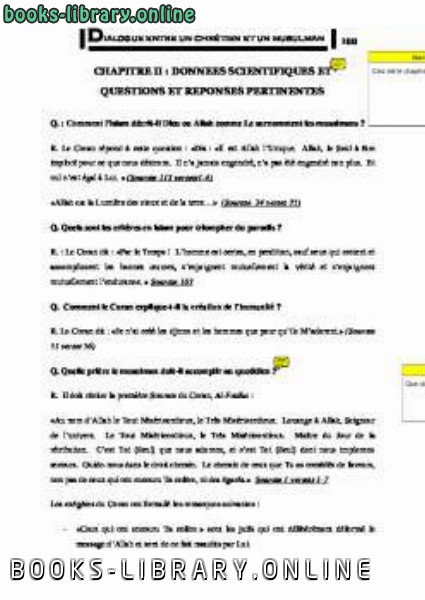
Quelques donn eacute es scientifiques du Saint Coran PDF
قراءة و تحميل كتاب Quelques donn eacute es scientifiques du Saint Coran PDF مجانا
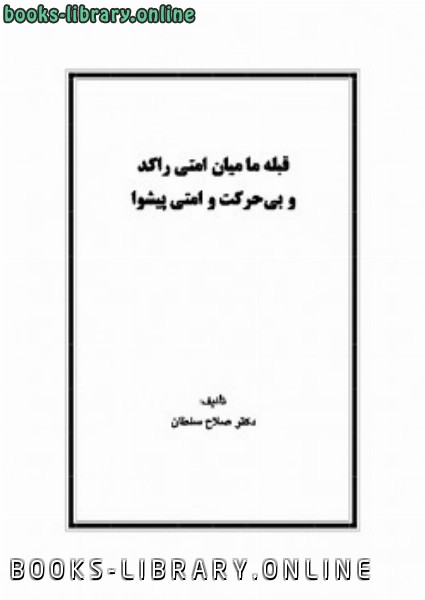
قبله ما میان امتی راکد و بی حرکت و امتی پیشوا PDF
قراءة و تحميل كتاب قبله ما میان امتی راکد و بی حرکت و امتی پیشوا PDF مجانا
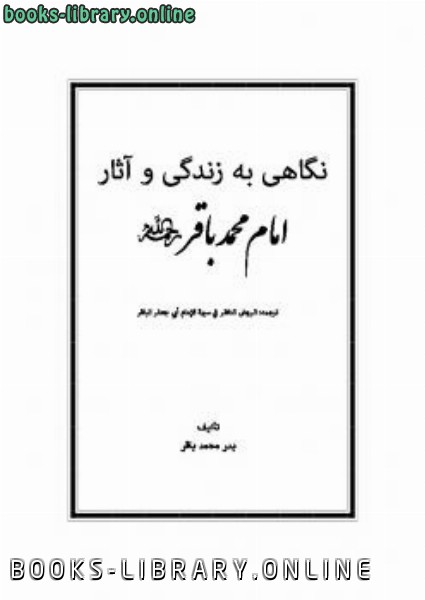
نگاهی به زندگی و آثار امام محمد باقر رحمه الله PDF
قراءة و تحميل كتاب نگاهی به زندگی و آثار امام محمد باقر رحمه الله PDF مجانا
JUSTICE AND COMPASSION IN THE QUR 039 AN PDF
قراءة و تحميل كتاب JUSTICE AND COMPASSION IN THE QUR 039 AN PDF مجانا
